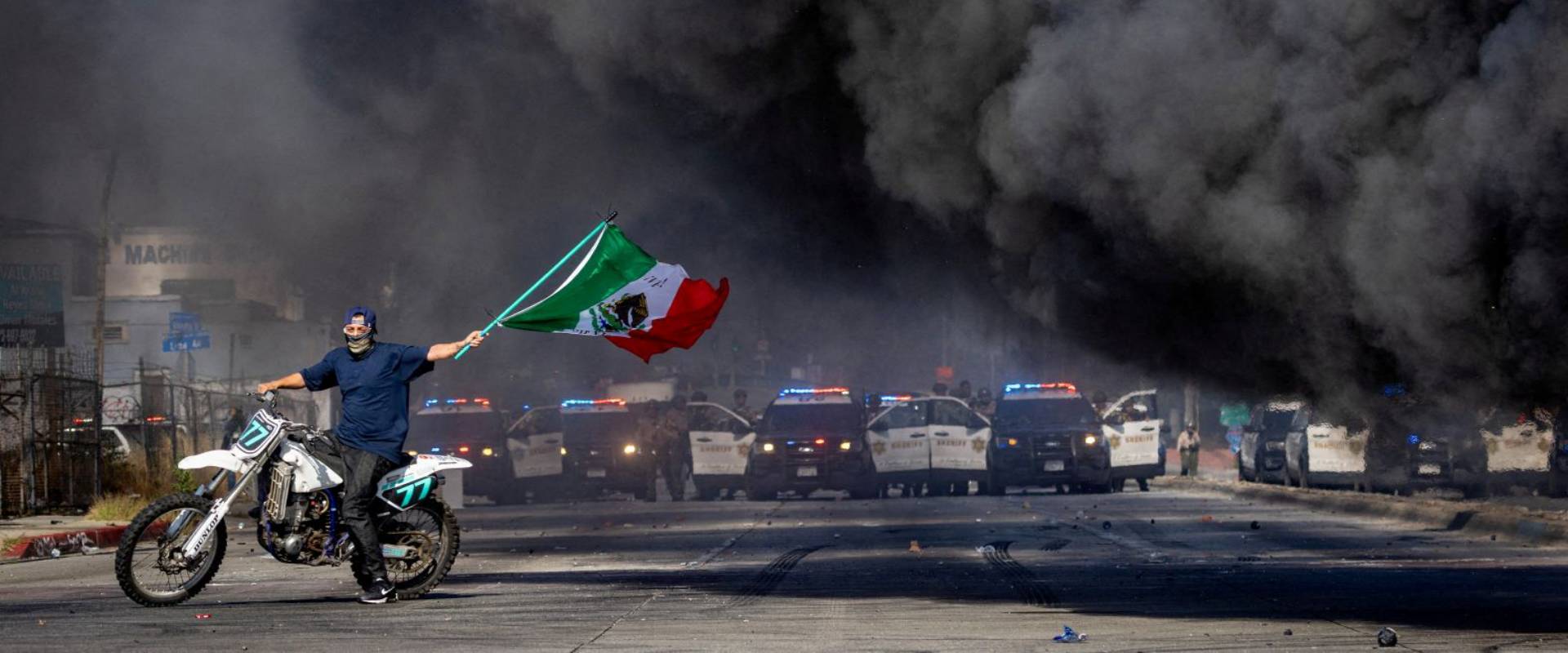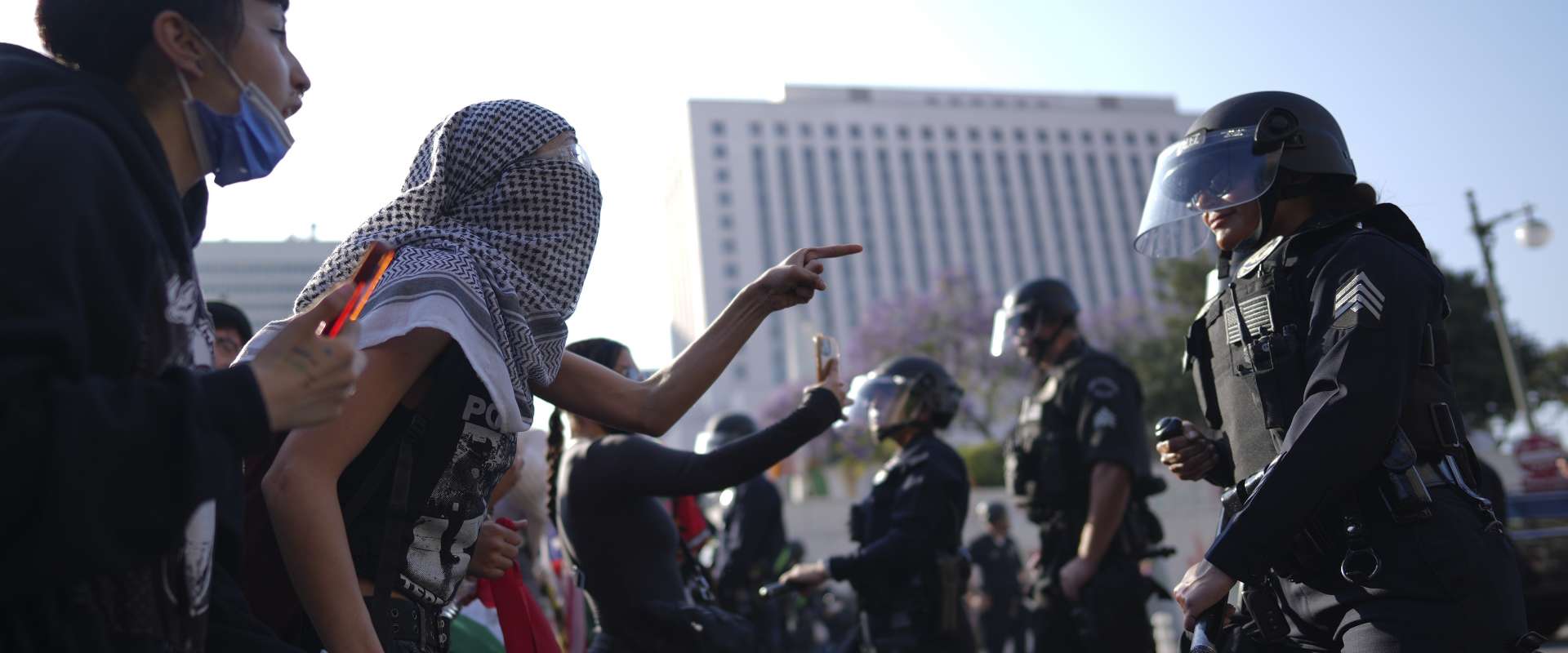I am writing here in response to your article, “The blush is off the rose.” Some of your assessments are spot on. I disagree sharply with others. The Democratic Socialists of America (DSA) is clearly in decline and has been politically adrift since at least 2020. But why did the DSA fail as a space for building the socialist left? And what are revolutionaries like us to do?
You write, “Tempest never had a policy about whether members should or should not be members of DSA.” But conversations with Tempest members suggested something different.
In February 2021, I was asked to join your group. A longtime comrade reached out, and we talked for a while about perspectives, what Tempest was doing, and our activities. Much of the conversation focused on the DSA and Tempest’s relationship to it.
Whether it was a reflection of your actual perspective at the time or how it was merely popularly perceived by this comrade, he encouraged me to join Tempest and the DSA. He argued the DSA was where we had the chance to meet and influence a whole layer of radicalizing people. Tempest was the best way to organize ourselves to reach them.
I didn’t join Tempest then. I argued that the key first step before even considering entering the DSA was organizational and political clarity. What, after all, would we be bringing people into after meeting them as Tempest members? How could we coordinate our activities without a clear politics and vision of organization?
For one thing, the hundreds of members of our previous organization, the International Socialist Organization (ISO), had fallen away. We were in a much weaker position than we were pre-2019, and we had to reckon with patiently rebuilding ourselves, essentially from scratch.
This has been my first, and perhaps greatest, source of friendly disagreement with you comrades in Tempest. In my view, you have jumped ahead of the important work of political and organizational clarification in order to influence broader layers, thus accomplishing neither. You haven’t provided a satisfactory answer to the question, “What are we building?” And in so doing, partly without intending to, your politics and organization have gotten a little, shall we say, swampy.
Tempest, like the local groups that now make up Firebrand, came primarily out of the ISO. The question of organization — really, a general retreat from organization — loomed large in its dissolution. While we all grappled with the question of revolutionary organization, of contending with the mistakes of the past, Tempest’s answer has largely been: the “sect” model has failed. The best we can do is constitute a looser organizing project, engage in movement struggles and broader spaces, and (hopefully) cohere a revolutionary organization or party in the future after the real working-class vanguard is rebuilt.
Both before and since that conversation in the winter of 2021, I’ve stayed in irregular contact with Tempest comrades. For a while, the Boston Revolutionary Socialists had an active Tempest member in our ranks. By all accounts, the breakup of the ISO still looms large in Tempest.
Are you still afraid of becoming a micro-sect? It’s taken nearly two years, from Tempest’s fall 2021 convention, to make initial forays into establishing local groups. Months ago, I heard Boston comrades were organizing a Tempest local (great!), but I have seen no sign of it on the ground.
Without political clarity, some members were also influenced by the DSA’s politics — notably seen in Brandon Johnson’s Chicago mayoral campaign. Certain Tempest members I talked to expressed frustration over the collective allowing members to openly break from the revolutionary position of intractable opposition to the Democratic Party.
In my view, by not having worked out the organizational lessons of the ISO — adequately separating out Leninism from the distorted form we learned and implemented — you have been a little shy about political clarity.
You have a perspective that broader forces than just you will ultimately construct the revolutionary party. We feel the same about ourselves. But in my experience, Tempest seems more interested in building relations and influencing people to your right than you are in strengthening relations with groups also on the revolutionary left — particularly us.
We’re not “tinpot ultraleftists,” as one of your members derisively called us. We don’t simply sit on the sidelines and plant the red flag. We recognize, however, the realities of organizing inside a social-democratic organization like the DSA.
As I have explained elsewhere, broad parties are not an alternative to the anti-democratic faction-gang methods you understand as monolithic “micro-parties”. Evidence suggests that broad social-democratic parties like the Socialist Party of America taught these future “micro-sect” despots in all the factional warfare they would use against later dissenters — and would pass down.
The looseness of the broad tent requires a struggle for control of the apparatus as well as winning over the ranks politically. Given the sharp differences in consciousness and goals between reformists and revolutionaries, there is no way for such a party to achieve long-term stability without one side losing.
Although social-democratic or “democratic socialist” organizations emerge from periods of radicalization (like the one since 2008 that you mention), the nature of social-democratic politics is accommodation. Reformists, perhaps in some misguided belief of “protecting the gains of the organization,” often use their domination of party leadership bodies to enforce a “lowest common denominator” politics against the group’s left wing. Is this not the lesson of the recent Bowman-Palestine affair, or the New York City DSA chapters’ resolution to silence criticisms of “electeds”?
Yet, given the diffuseness of broad-tent organizations — all the different and decentralized working groups (or in parties past, singing associations, workers’ clubs, and the like) — even where the party lacks overt despotism, the “tyranny of structurelessness” reigns. That’s why the DSA was so adrift during the George Floyd rebellion of 2020. There’s either freedom of discussion and no unity in action, or no freedom of discussion and an imposed unity of action. Even when resolutions pass, people largely vote with their feet — and increasingly, they’re walking out or walking only to the bourgeois voting booth.
So the choice for revolutionaries in a broad party is either: some form of political or organizational liquidation (even the self-silencing of revolutionaries so we no longer appear a “threat”), or a decisive struggle for the direction of the organization and its rank and file. The latter, in turn, requires a firm and decisive organization of revolutionaries that can instill a direction and confidence in others. Tempest, on the other hand, has avoided this — suggesting such a level of organization is premature or even harmful.
No doubt, you all have made valiant attempts in fighting inside DSA. Perhaps in contrast to some Firebrand comrades, I believe it was, at one time, an important venue for shaping the contours of the present and future American Left — just as Students for a Democratic Society was for the 1960s radicalization. The DSA itself was never going to turn into a fighting party, but we could influence what came after. We needed some people to fight for the direction of a section of the radicalization that had joined DSA, against both democratic-socialist reformism and a re-emerging tankie “socialism from above” left. But you fought that good fight with your hands tied behind your back.
I write this because I believe that you could contribute so much to the reconstruction of a revolutionary communist movement. I do sincerely believe many of us could be in the same revolutionary party in the future (after some debate on certain issues, like arms to Ukraine). If that comes to pass, I would be glad. It would be a reunion, of sorts.
You might be asking yourself: “Well, Reed, what the #$%^ have you done?” I will admit I don’t have all the answers, and that my practice has not been perfect. But the Boston Revolutionary Socialists has grown from nothing to a dozen members in just a couple of years. We’re not huge, but we’ve developed a new generation of young socialist activists — none of whom were ever in the DSA. We’ve intervened in struggle and helped shift the terrain. And we started this with only two or three comrades, with only one consistent longstanding and (sort of) well-read Marxist (me).
We’re not alone either. Without a shred of overconfidence, the Denver Communists and Seattle Revolutionary Socialists have joined us in making an attempt to create anew. We do this without ignoring painful realities and without sacrificing hard-earned lessons.
There have been some nights, sitting over my steno notepad, wracking my brain over this or that next step in our small group, when I’ve thought: “I really wish I had more comrades from back in the day here with me.” I wish I had more comrades in the Boston Revolutionary Socialists who had years of experience, even more than me, to bounce ideas off of about our day-to-day organizing. I wish I had more comrades with strong politics and strong organizing where we could set tasks and work in harmony.
In short, I wish I had you, comrades in Tempest. The Boston Revolutionary Socialists and our Firebrand family have come a long way in a very short time, and I’m proud of every step. But it doesn’t keep me from thinking: “what might it have looked like if they had slipped a little less into the swamp?”
In solidarity,
E. Reed
Boston Revolutionary Socialists, Firebrand



